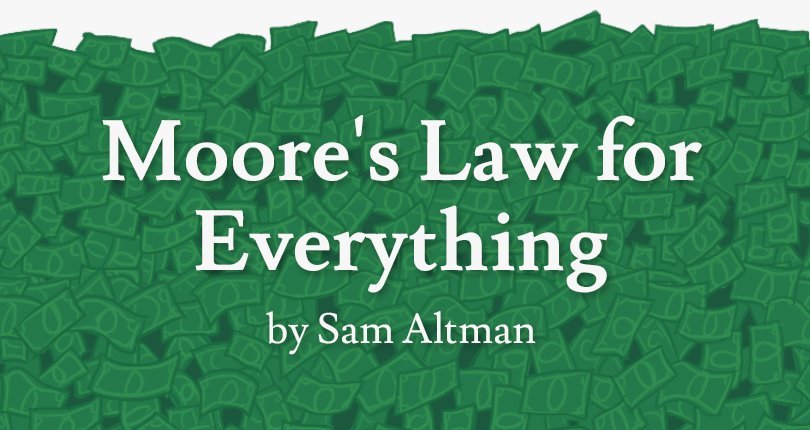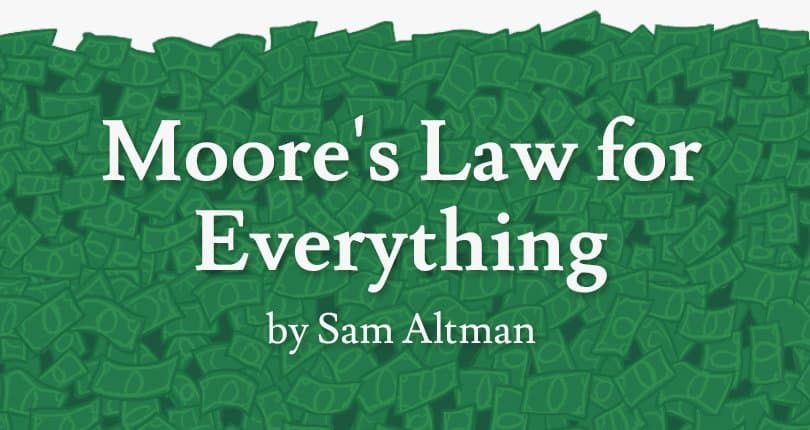OpenAI CEO Sam Altman warns that AI will soon automate most human labor, creating unprecedented wealth but risking severe inequality. He proposes taxing companies and land to fund universal dividends through an 'American Equity Fund,' ensuring everyone benefits from the AI revolution. This policy pivot could redefine capitalism and prevent societal collapse in a tech-dominated future.

In a provocative essay, OpenAI CEO Sam Altman paints a stark vision of the near future: artificial intelligence will rapidly automate everything from legal analysis to medical diagnostics, fundamentally shifting economic power from labor to capital. Drawing from his frontline experience in AI development, Altman argues that without transformative policy, this technological upheaval could leave most people "worse off than they are today." His solution? A radical reimagining of wealth distribution centered on taxing capital—not labor—to fund universal dividends. Here’s why this proposal demands urgent attention from technologists and policymakers alike.
The Inevitable AI Tsunami
Altman asserts that AI’s advance is "unstoppable," accelerating through a "recursive loop of innovation" where AI systems help build smarter successors. Within five years, AI will handle complex tasks like reviewing legal documents; in a decade, it could perform assembly-line work or serve as companions; and beyond that, it might "do almost everything," including groundbreaking scientific research. This mirrors historical exponential trends—like Moore’s Law for semiconductors—but applied economy-wide, slashing the cost of goods and services as AI-driven automation reduces labor expenses to near zero. Imagine houses built by solar-powered robots or AI teachers personalizing education—scenarios where "the cost of building that house is close to the cost to rent the robots."
"We need to design a system that embraces this technological future and taxes the assets that will make up most of the value—companies and land—to fairly distribute wealth. Doing so can make society less divisive and enable everyone to participate in its gains." —Sam Altman
Yet this abundance comes with peril. As AI displaces jobs, wealth concentrates in the hands of those owning capital assets, exacerbating inequality. Traditional income taxes, Altman contends, are ill-equipped for this shift because future jobs may not generate significant economic value. Instead, he champions a system where "everyone benefits from capitalism as an equity owner," transforming passive citizens into stakeholders in national prosperity.
The American Equity Fund: A New Social Contract
Altman’s flagship proposal is the "American Equity Fund," funded by two targeted taxes:
- A 2.5% annual tax on company valuations, paid in shares.
- A 2.5% annual tax on privately held land value, paid in cash.
Distributed to all U.S. adults, these funds would provide annual dividends—projected at ~$13,500 per person within a decade—enabling spending on healthcare, education, or entrepreneurship. By taxing capital, Altman aims to align incentives: shareholders and citizens both profit when companies innovate, while land taxes capture value created by societal progress (e.g., infrastructure or network effects). Crucially, this avoids penalizing labor and encourages growth, as "continuous growth only happens when the pie grows."
Projected Wealth Distribution (U.S., Next Decade)
- Corporate assets: ~$50 trillion (doubling historically)
- Private land value: ~$30 trillion (accelerating with AI scarcity)
- Estimated dividend per adult: $13,500/year
Technical Feasibility and Challenges
For developers and economists, the plan raises complex implementation questions. Taxing company shares could deter reinvestment or encourage offshoring, mitigated by thresholds like taxing only firms with $1B+ revenue. Land valuation might rely on federal assessors or adaptive local models, though Altman admits practical hurdles in separating land value from improvements. He also advocates constitutional safeguards to prevent voter manipulation of tax rates and restrictions on borrowing against dividends to ensure long-term fairness.
Why This Matters for the Tech Ecosystem
Altman’s call isn’t just policy—it’s a survival guide for the AI age. Tech leaders must recognize that unchecked innovation risks public backlash and regulatory overreach. By advocating capital taxes, Altman reframes AI’s ethical burden: tools like large language models shouldn’t just optimize efficiency but uplift society. For startups, this could mean operating in an economy where consumers have greater purchasing power, fueling demand for innovation. Yet, it demands scrutiny—could AI’s "virtuous circle" coexist with environmental or privacy protections?
The essay’s timing is critical. As Altman notes, AI-driven GDP growth could make this transition feasible within years, not decades. Embracing such frameworks early might prevent the dystopian inequality that often accompanies disruption, turning the AI revolution into a tide that lifts all boats—not just yachts.

Comments
Please log in or register to join the discussion